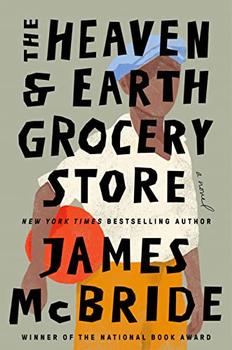Summary | Excerpt | Reading Guide | Reviews | Beyond the book | Read-Alikes | Genres & Themes | Author Bio

Suspenseful, cinematic, lushly detailed, and filled with almost mythically
colorful characters, Song Yet Sung demands a film adaptation from the
very first page. But if you wait for it to come to a theater near you, you'll
miss the easy music of James McBride's lyric styling. His third person narration
recalls a storyteller's tone, relishing the story and the telling of it, not
afraid to embellish a little to bring out the emotional undertone and engage the
audience. He draws the reader close, but his sweet prose softens the brutal
facts that shape the story, allowing the reader to wade into the terrible
history, instead of reeling away.
On one level, Song Yet Sung is an adventure tale of the antebellum
American south, revolving around the complex nature of the relationships formed
by the institution of slavery. But in McBride's sensitive and sympathetic
handling of all of his characters, slave-catchers included, the story also
reveals the many ways in which a person can be enslaved to an idea, to history,
to another person, or to himself. As the lines of freedom blur, the real terror
lies in the choices: to save or to abandon, to kill or be killed, to escape or
to fight, to reveal or keep the secret, to dream or to give up.
I found Song Yet Sung such a good, old-fashioned read - dramatic plot,
broad characters, redemptive themes - that I wanted it to be perfect.
Unfortunately, it suffers from a few facile conclusions and implausible
resolutions, and the central dream motif becomes heavy-handed as the novel
progresses. Still, so engaging are its many merits that choosing to forgive its
minor flaws offers the possibility of an up-all-night read that runs much deeper
than the usual fare.
![]() This review was originally published in The BookBrowse Review in February 2008, and has been updated for the
January 2009 edition.
Click here to go to this issue.
This review was originally published in The BookBrowse Review in February 2008, and has been updated for the
January 2009 edition.
Click here to go to this issue.

If you liked Song Yet Sung, try these:

The Heaven & Earth Grocery Store
by James McBride
Published 2025
From James McBride, author of the bestselling Oprah's Book Club pick Deacon King Kong and the National Book Award–winning The Good Lord Bird, a novel about small-town secrets and the people who keep them.

by Scott Shane
Published 2024
A riveting account of the extraordinary abolitionist, liberator, and writer Thomas Smallwood, who bought his own freedom, led hundreds out of slavery, and named the underground railroad, from Pulitzer Prize-winning author and journalist, Scott Shane. Flee North tells the story for the first time of an American hero all but lost to history.
It was one of the worst speeches I ever heard ... when a simple apology was all that was required.
Click Here to find out who said this, as well as discovering other famous literary quotes!
Your guide toexceptional books
BookBrowse seeks out and recommends the best in contemporary fiction and nonfiction—books that not only engage and entertain but also deepen our understanding of ourselves and the world around us.